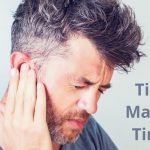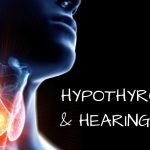Football fans are some of the most devoted fans in sports, without a doubt. A large part of the fandom is screaming at the top of your lungs at a stadium, a neighborhood bar, or in your living room to show your support.
There can be a serious consequence, however: disabling hearing loss.
In the battle among fans for the Guinness World Record title of loudest crowd, the competitive spirit rivals that of the NFL itself. Hearing experts say that serious dialogue is long overdue about damage done by crowd noise.
The Seattle Seahawks, a team infamous for its die-hard fan base (“The12th Man”), set a Guinness World Record in 2013 for loudest crowd roar during a game, that clocked in at 137.6 decibels (dB) and induced a mini-earthquake.
“As you can imagine, it is a sensitive issue in the midst of an unbelievable season,” says Nancy Alarcon, a speech-language pathologist at the University of Washington in Seattle.
Jack Wrightson of the acoustical consulting firm Wrightson, Johnson, Haddon & Williams, Inc. in Dallas says crowd noise at NFL games averages between 80 and 90 dB. That is a measurement already at the “loud” or “extremely loud” range according to the American Speech-Language-Hearing Association.
Causes and Prevention
Not only is hearing loss one of the most common, chronic medical conditions—approximately 48 million Americans are living with some form of disabling hearing loss—it is one of the most common workplace injuries. Millions of people have acquired hearing loss, tinnitus (ringing in the ears), or other hearing loss-related issues due to being exposed to loud noises at work.
Without proper ear protection, prolonged exposure to 85 dB or more, for eight hours or longer, could lead to permanent hearing loss, warns the National Institute of Occupational Safety and Health (NIOSH). Whenever the noise level increases by three decibels, the recommended exposure time is cut in half.
The Occupational Safety and Health Association (OSHA) has established guidelines for safe listening with hearing protection in workplaces. This is a truncated list of the higher ends of the decibel spectrum:
- 100 dB – 100 dB is only safe for about two hours, according to OSHA.
- 102 dB – At 102 dB, someone should get protection if they will be exposed for more than 1.5 hours
- 105db – People in this environment for one hour need hearing protection
- 110 dB – It is only safe to be around 110 dB for 30 minutes or less before hearing protection is needed
- 115 dB – Noise at this volume is only safe for up to 15 minutes without protection
So often, cheering fans at sporting events can generate sounds into the hundreds, which is worrisome for experts considering the average football game lasts around three hours. The crowd noise can verge on painful as excitement builds in a given game.
“There are so many shots at 106, 107, 108,” Alarcon says, referencing the December 2013 game in which Seahawks fans marked their 137.6 dB Guinness World Record milestone.
For just a few dollars, you can easily protect your ears in situations where you know you will be exposed to loud noise. Ear protection earmuffs or foam earplugs can help reduce noise levels by about 20 or 30 dB and cost around $10. The cost of not protecting your hearing can be much higher.
It can be easy to get caught up in the excitement of the game, especially if you are at the stadium with thousands of other fans. One thing to consider is your hearing health when preparing for the big game.
Add ear protection to your checklist before you meet friends and family to tailgate and head into the stadium. Snacks: check. Beverages: check. Earplugs: check. Terrible Towel: check.
It’s that easy.
When you take your hearing health into consideration, you avoid the ringing in your ears the day after the big game, headaches or migraines, or more serious and permanent issues. Hearing loss can lead to mental fatigue and cognitive decline, social isolation and depression, and has been linked to Alzheimer’s and dementia.
If you believe you have damaged your hearing by attending sporting events, consult an audiologist and schedule an appointment for a hearing exam. An audiologist can determine the level of hearing loss and the severity, then recommend strategies for caring for your hearing in the future. If hearing aids are recommended, be sure to check out our selection of discount hearing aids.






